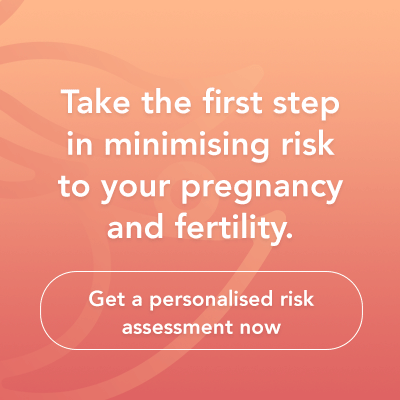Preparing for pregnancy involves more than just timing and planning—it also includes optimising your health through proper nutrition. Katrina Ridout, an expert in fertility nutrition, emphasises the importance of tailored nutritional strategies to support individuals and couples on their journey to parenthood.
The Foundation of Preconception Nutrition
Nutrition forms the foundation of overall health, and it becomes even more critical when planning for pregnancy. Preconception nutrition aims to enhance fertility by addressing specific nutritional needs that support reproductive function. According to Katrina Ridout, “Optimising preconception nutrition involves ensuring that your body is equipped with the right nutrients to support reproductive health and hormonal balance.”
Key Nutrients for Fertility
Certain nutrients play key roles in fertility and reproductive health. Folic acid, for example, is crucial in preventing neural tube defects in early pregnancy. “Folic acid is essential even before conception,” explains Katrina. “It’s found in leafy greens, fortified cereals, and supplements recommended for women planning pregnancy.” Other important nutrients include iron, which supports oxygen transport and foetal development, and omega-3 fatty acids, known for their anti-inflammatory properties and role in brain development.
Balancing Hormones through Diet
Hormonal balance is crucial for conception, and diet can significantly influence this balance. “Consuming a diet rich in whole foods, fruits, vegetables, lean proteins, and healthy fats can help regulate hormone levels,” advises Katrina. Avoiding processed foods and excessive sugars helps maintain stable insulin levels, which can impact fertility, especially in conditions like PCOS (Polycystic Ovary Syndrome).
Managing Weight and Nutrition
Achieving a healthy weight before pregnancy is important for both fertility and pregnancy outcomes. “Being either underweight or overweight can affect hormone production and ovulation,” Katrina points out. “A balanced diet tailored to individual needs can help manage weight and improve fertility.” She recommends personalised nutrition plans that consider factors such as BMI (Body Mass Index) and metabolic health.
Addressing Specific Health Conditions
Many individuals face challenges such as PCOS, endometriosis, or autoimmune disorders that can affect fertility. “Nutritional strategies can play a crucial role in managing these conditions and improving fertility outcomes,” says Katrina. For example, reducing inflammation through diet and lifestyle changes can alleviate symptoms and support reproductive health.
Lifestyle Factors and Preconception Health
Beyond nutrition, lifestyle factors such as smoking, alcohol consumption, and stress management also influence fertility. “Creating a supportive environment for conception involves adopting healthy habits,” Katrina advises. “This includes regular exercise, adequate sleep, and reducing stress levels, which can positively impact reproductive health.”
Partner Support and Fertility
Optimising preconception nutrition isn’t just for women—men’s health also significantly affects fertility. “Encouraging partners to adopt healthy eating habits and lifestyle changes can enhance sperm quality and overall fertility,” Katrina emphasises. “It’s a joint effort to prepare both partners for a healthy pregnancy.”
Consulting with a Fertility Nutrition Specialist
Every individual’s journey to parenthood is unique, and personalised guidance from a fertility nutrition specialist like Katrina Ridout can make a substantial difference. “Through comprehensive assessments and personalised nutrition plans, I help clients optimise their fertility potential,” Katrina explains. “From managing health conditions to enhancing overall reproductive health, my goal is to support individuals and couples in achieving their dream of parenthood.”
Optimising preconception nutrition sets a solid foundation for a healthy pregnancy. By focusing on nutrient-rich foods, hormonal balance, managing weight, and addressing specific health conditions, individuals can significantly improve their fertility outcomes. Katrina Ridout’s expertise in fertility nutrition offers tailored strategies to support each person’s unique journey towards parenthood. Whether you’re just starting to plan or actively trying to conceive, investing in your preconception health through nutrition can make a world of difference in your pregnancy journey.
For more information on optimising your preconception nutrition or to schedule a consultation with Katrina Ridout, contact her office today.
